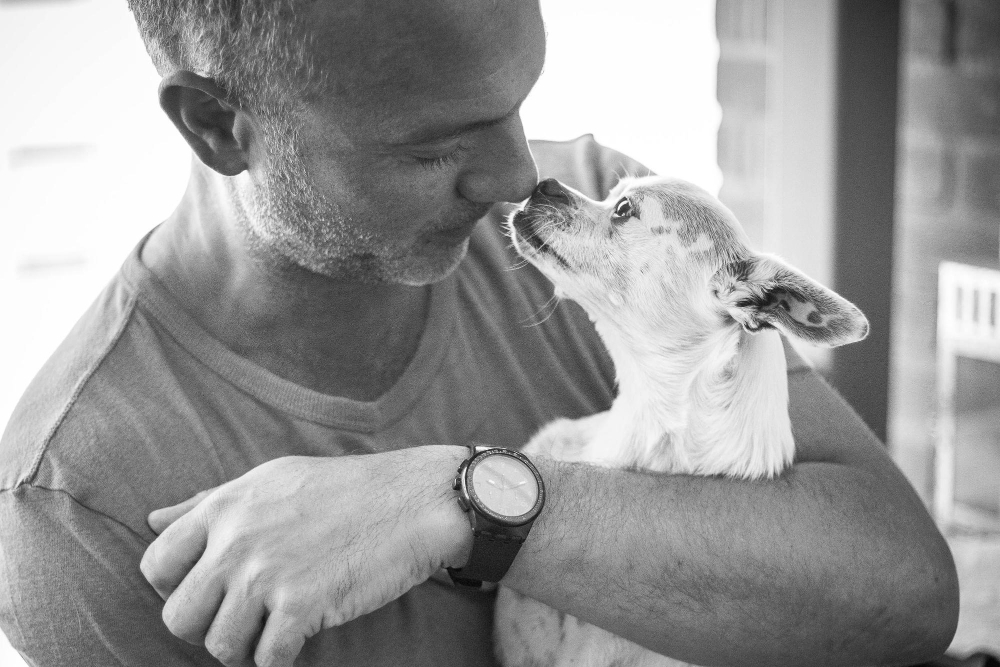Understanding the Right Time to Euthanize a Pet

Understanding the Right Time to Euthanize a Pet

Losing a pet is a profoundly difficult time for any pet owner. Navigating the decision of when to euthanize a beloved animal is one of the toughest aspects of pet care, and it's imperative to approach this decision with understanding, empathy, and clarity.
In many ways, our pets become family members, intertwined in the fabric of our daily lives and our fondest memories. Consequently, the end-of-life discussion is one that's filled with emotion and complexity. This blog post takes a deep look into this sensitive topic, providing you with the insights you need to approach this decision with the respect and thoughtfulness it deserves.
Examining Your Pet's Quality of Life
The first and most important factor in considering pet euthanasia is the quality of your pet’s life. It's an emotional barometer that requires you to be mindful of your pet's daily experiences. This includes pain management, mobility, appetite, and overall happiness. If your pet is unable to enjoy their favorite activities or is persistently suffering, it may be time to consider how their passing could provide a compassionate end to their suffering.
Acknowledge What's Normal for Your Pet
Every pet has a different baseline of normal behavior. It’s essential to recognize any significant, persistent changes in behavior or physical health. Keep a close eye on symptoms such as prolonged lethargy, incontinence, difficulty breathing, or refusal to eat. Such changes could indicate a decline in your pet’s well-being.
Carefully Review Medical Treatments
If your pet is undergoing extensive medical treatments with little hope for complete recovery, continuing these treatments should be reevaluated regularly. Treatment plans should be tailored towards maintaining or improving the pet’s quality of life, not as a method of postponing the inevitable.
Discussing the Decision With Professionals
Deciding to euthanize a pet is rarely a solitary decision. It's a choice often made in consultation with veterinary professionals who can offer guidance and medical perspective.
Seek Multiple Opinions
If you are unsure whether it's time to euthanize your pet, consider seeking multiple veterinary opinions. Different perspectives and experiences can sometimes offer new insights or options you might not have considered.
The Role of Palliative Care in Decision Making
Palliative care, focused on providing relief from the symptoms and stress of a serious illness, can provide an important buffer between immediate treatment and euthanasia. Discuss with your vet whether palliative care may be the right choice for your pet's ongoing comfort.
Navigating Emotional Preparedness
The decision to euthanize a pet is not just a physical or medical one; it's bound to emotional ties that can be complicated and overwhelming. Preparing for the emotional turbulence beforehand can significantly ease the process when the time comes.
Consider Your Support System
Knowing who you can turn to for emotional support – whether it’s a partner, family member, or friend – is crucial. Discuss your feelings and concerns with those who understand the bond you share with your pet.
The Concept of Anticipatory Grief
Grief can begin well before the actual loss of your pet. Anticipatory grief is a very real emotion that pet owners often experience. Understanding that it is a healthy and necessary part of saying goodbye can help in emotionally preparing for the loss.
Reflecting on Life's Unanswered Questions
When considering the right time to euthanize a pet, it’s common to reflect on what is fair and just. These questions are deeply personal and are rooted in the unique bond between pet and owner.
Understanding Guilt and Its Role in Decision Making
Guilt is a common emotion associated with the decision to euthanize a pet. It’s vital to understand that you are making this decision out of love and with the best interests of your pet at heart.
Financial and Ethical Considerations
Sometimes, the considerations in euthanasia aren’t solely emotional. Financial and ethical debates can also play a role. If you’re considering euthanasia due to medical expenses, ask yourself if the cost of treatment is still providing a reasonable quality of life.
Preparing for the Final Moments
When you have ultimately made the decision to euthanize your pet, the final moments can be both precious and poignant. It’s an opportunity to provide a peaceful and loving transition for your pet.
Home vs. Clinical Euthanasia
Deciding whether to euthanize your pet at home or in a clinical setting is a personal choice. In-home euthanasia can provide a more familiar and comfortable environment for your pet’s final moments.
Aftercare and Commemoration
Decide on the plans for your pet's remains in advance, and consider how you would like to commemorate their life. Some people choose to keep their pet’s ashes, while others may wish to scatter them in a meaningful place.
The Journey After Loss
The aftermath of losing a pet is a challenging road. Coping with the loss and allowing yourself to grieve is an essential part of moving forward.
Understanding the Stages of Grief
Grief is a process that is often described in stages—denial, anger, bargaining, depression, and acceptance. Understanding these stages can help you recognize and validate the emotions you may be experiencing.
Honoring Your Pet's Memory
Honoring your pet’s memory can be a healing experience. Whether through creating a memorial, journaling about your experiences, or volunteering at an animal shelter, there are many ways to celebrate the life of your beloved pet.
Conclusion
Knowing when to euthanize a pet is one of the most profound and difficult decisions a pet owner may face. It’s a culmination of recognizing changes in your pet’s quality of life, consulting with professionals, and navigating emotional preparedness and ethical considerations. By approaching the decision with open communication, respect, and love, you can ensure that your pet's last moments are met with the compassion and care they've been shown throughout their life.
Pet euthanasia is about finding the right balance between the pet’s needs and your own readiness to say goodbye. It is an act of profound love and perhaps the last, most difficult duty you can perform for your cherished companion. And as you reflect on the life you've shared with your pet, remember the wisdom of Anatole France, "Until one has loved an animal, a part of one's soul remains unawakened." If you're considering in home euthanasia Jupiter, FL, contact Rover Veterinary Care today for more information.
